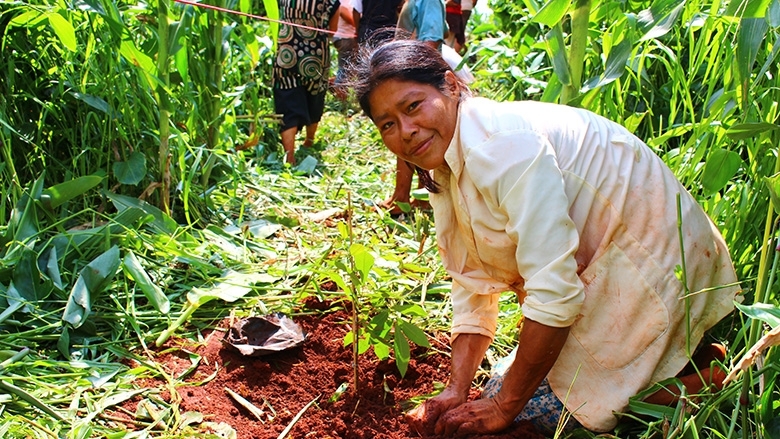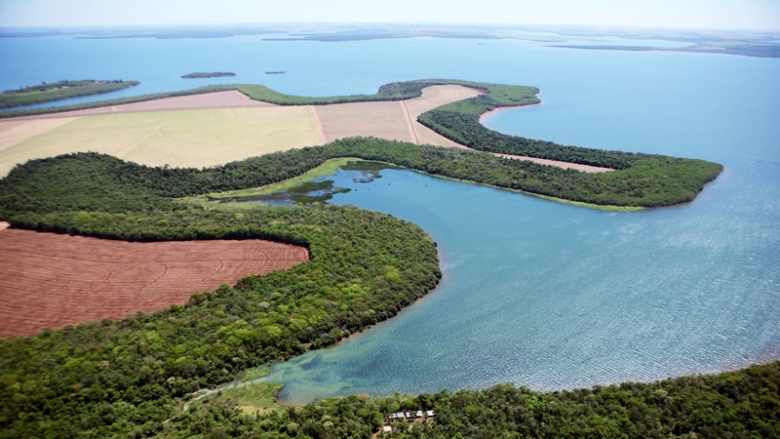Enhancing Impact Through Learning: Lessons from the Global Environment Facility's Evaluation of Setbacks
co-author Michael Woolcock
Acknowledgements: This blog is based on the evaluation “Learning from Challenges in GEF Projects”. The evaluation was prepared by a GEF IEO team led by Kseniya Temnenko (Evaluation Officer, GEF IEO), under the guidance of Geeta Batra (Director, GEF IEO). The core evaluation team members were José Miguel López Beltrán (Evaluation Analyst, GEF IEO), Maria Shkaratan (Senior Consultant, GEF IEO), Mariana Calderon Cerbon (Evaluation Analyst, GEF IEO), Michael Woolcock (Lead Social Scientist, the World Bank’s Development Research Group).
In the world of environmental conservation and sustainability, navigating challenges is an everyday reality. Yet the way organizations approach these hurdles can significantly impact their ability to innovate, adapt, and ultimately bring about positive change. While institutions often prioritize showcasing their successes, there are valuable lessons to be learned from understanding setbacks. In this sense, a recent evaluation conducted by the Global Environment Facility’s (GEF) Independent Evaluation Office (IEO) – Learning from Challenges in GEF Projects – sheds light on the transformative power of learning from challenges.
Understanding the Context
The GEF has funded over 5,700 projects in low- and middle-income countries since its founding in 1991. To its credit, the vast majority of the supported interventions have been able to achieve their planned outcomes and rated ‘satisfactory’ or higher. But not all of them. Some initially struggled to gain traction but subsequently improved, while others were never able to meet their objectives.
Shifting Perspectives
The ‘Learning from Challenges’ evaluation sought to unpack some of the key reasons why certain GEF projects recovered from a rough start while others did not. By departing from the 'success-centric' mindset prevalent in many organizations, this evaluation instead encouraged candid reflection on setbacks, failures, and missed opportunities – while also identifying those moments in which challenges were overcome. Adopting this shift in perspective, we believe, can help promote a broader culture of continuous innovation and improvement within the GEF, and beyond.
Lessons Learned from Setbacks
The IEO identified a multitude of lessons gleaned from its analysis of the GEF’s most challenging projects. From poor design and bureaucratic bottlenecks hindering project implementation to waning political support and unforeseen contextual conditions complicating interventions, each obstacle provided invaluable insights – especially when vexing challenges were successfully addressed.
Case Study: Turning Around a Troubled Project in Paraguay
In Paraguay, for example, the project “Improving the Conservation of Biodiversity in Atlantic Forest of Eastern Paraguay” (GEF ID 2690) was low performing at mid-term and at risk of termination. After the mid-term review, however, the project was able to catalyze such significant conservation results that, by closure, it had recreated biodiversity connectivity between protected areas in the proposed Conservation Corridor in the Atlantic Forest. How did the leadership team achieve this turnaround?
The project struggled in its early stages due to political and economic conditions that favored land conversion in soy fields over forest conservation and agroforestry. After the midterm review, the project went through a major restructuring. This entailed shifting the focus from large landowners to indigenous communities and changing the execution arrangements, with Itaipú (a large hydroelectric dam and an international entity) taking the lead as the sole executing agency. These changes, along with Itaipú’s capacity, financing, and commitment to forest restoration, turned the project around, leading to the creation of a significant forest corridor in one of the world’s most important ecosystems for biodiversity conservation.
By implementing corrective actions grounded in an extensive contextual analysis and in stakeholder consultations, the project was able to overcome both technical and complex adaptive challenges.
 Participation of indigenous communities was crucial for turning around the project in Paraguay. Source: World Bank.
Participation of indigenous communities was crucial for turning around the project in Paraguay. Source: World Bank.  Forest strip around Itaipú Dam Reservoir. Itaipú engaged landowners in reforestation and creation of biodiversity connectivity between protected areas. Source: Itaipú Binacional.
Forest strip around Itaipú Dam Reservoir. Itaipú engaged landowners in reforestation and creation of biodiversity connectivity between protected areas. Source: Itaipú Binacional.
Implications for Learning Organizations
In contexts and sectors filled with uncertainty and adversity, the path to progress lies not in avoiding challenges but in embracing them, determining when to push on and when and how to change course.The GEF IEO's evaluation serves as a compelling case study for learning from challenges, especially when the change being sought is complex and contested, stakes are high, and contexts are shifting. Embracing a culture of structured introspection, accountability, and resilience can empower organizations to navigate turbulence with grace and efficacy. Doing so, however, requires sustained corporate and political support, along with team leaders willing, able, and authorized to navigate by judgment. The report identifies guiding principles for becoming a stronger learning organization, including, among others, actively engaging with complex environmental problems over time and through experimentation, setting realistic expectations aligned with problem complexity, using monitoring as a learning tool, and developing credible measures of how to address emergent problems.
Organizations improve their effectiveness by learning from successes and failures. Learning from successes is relatively easy – do more of the same. But learning from failures is difficult, because understanding what went wrong does not always provide clear guidance on what to do right the next time. In contexts and sectors rife with uncertainty and adversity, the path to progress lies not in avoiding challenges but in embracing them wholeheartedly, discerning when to push on (resilience) and when and how to change course (adaptation). Being appropriately ambitious in the face of today’s development and environmental challenges is surely necessary, but so too is forging the capacity to respond to different kinds of challenges in different kinds of ways, especially when key insights can only be acquired during implementation itself. The IEO's analysis of learning from setbacks shows the transformative potential of introspection, adaptation, and resilience.


